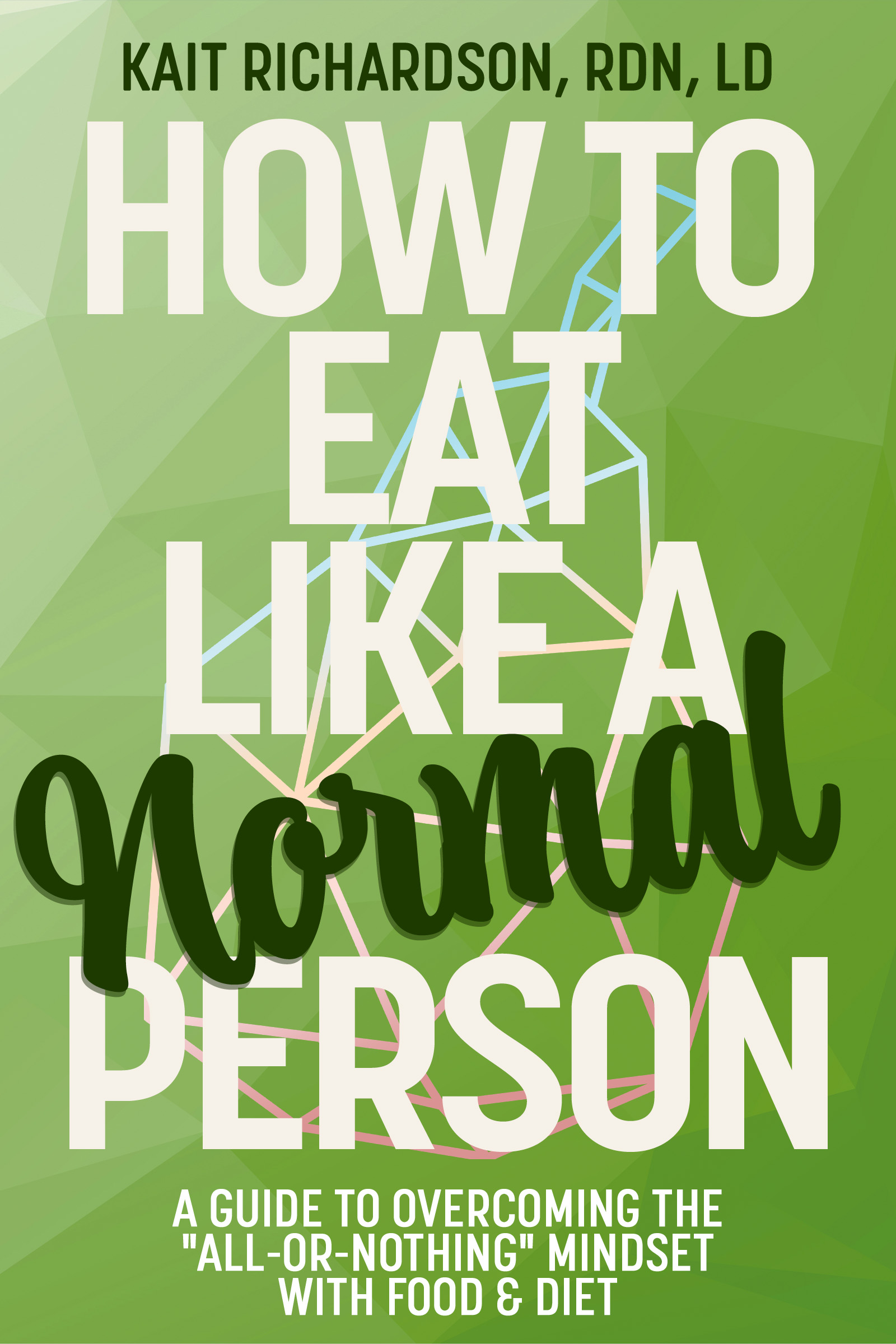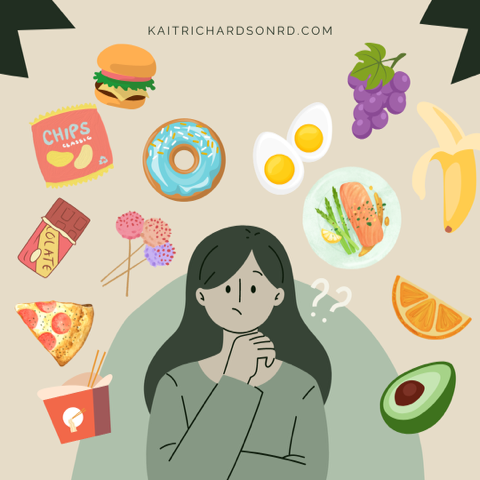Why Diets Don’t Work

Yo-yo dieting is exhausting (I should know- I started when I was 13 and didn’t stop for well over a decade).
As isolating as those years of counting calories and restricting carbohydrates were, I now know I was not alone in my battle with disordered eating. As a registered dietitian, women from all walks of life have shared their struggles around food, dieting, and body image with me on a regular basis.
Kendra, a 42 year old stay at home mom, has been trying to diet off the same 10 pounds since she had her second baby in 2012. She can’t remember the last time she ate a slice of pizza and didn’t worry about it ruining her progress.
Lucy eats clean all day- no bread, no dairy, and certainly no sugar. At night, she binge eats saltine crackers dipped in peanut butter, oatmeal smothered with dark chocolate chips, and shredded cheese melted on tortilla chips. She believes she needs more discipline, but I say she needs less restrictions.
Nellie lost 30 lbs doing keto. She gained 35 of them back. She tried keto again but now, it’s not working. She feels confused and frustrated at her body.
So why don’t extreme diets work? There are a few reasons…
- Diers are often cookie-cutter. Most diets are one-size-fits-all, which doesn’t align with the fact that we are all individuals with different genetics, lifestyles, body compositions, and personal preferences. I can’t tell you how many perimenopausal moms tell me they “failed” following the meal plan a 22 year old trainer dude made them. They didn’t fail, they just needed an approach that took their age, hormones, and lifestyle into account.
- Diets are unsustainable. Many diets are businesses, and they’re trying to get participants’ results quickly. To do so, they require them to eat very few calories and carbs, or they restrict major food groups. Once the diet ends, the dieter returns to normal eating and bam, regains all the weight.
- Restriction sucks. After a few weeks of “willpower,” most dieters find themselves sneaking any off-limit foods set by the diet. Whether the plan deprives the participants of sugar, bread, pasta, chips, or cheese, it usually ends with a binge and feelings of guilt.
Not to mention, extreme diets don’t teach you how to eat for regular life (but they do train you to fear food and distrust your body). What’s the point of starting if you can’t stick to it for the long haul?
As tempting as extreme approaches and quick fixes may sound, you have to stop dieting if you want to stand a chance at getting results that last and improve your relationship with food.
In my book How to Eat Like A Normal Person: A Guide to Overcoming the All-or-Nothing Mindset with Food & Diet, I’ll teach you how to adopt a balanced and nutritious approach to eating. Through six stories of my real life clients, I’ll share the eating and mindset strategies that helped them find peace with food and feel confident in both their body and choices. You won’t get a list of foods to avoid or restrict. Rather, you’ll learn what to eat more of so you feel more in control of food.
After reading How to Eat Like A Normal Person, you’ll never have to diet again!
Written by Kait Richardson, Registered Dietitian Nutritionist and author of How to Eat Like A Normal Person: Guide to Overcoming the “All-or-Nothing” Mindset with Food & Diet. You can follow her on Instagram @kaitrichardsonrd.



